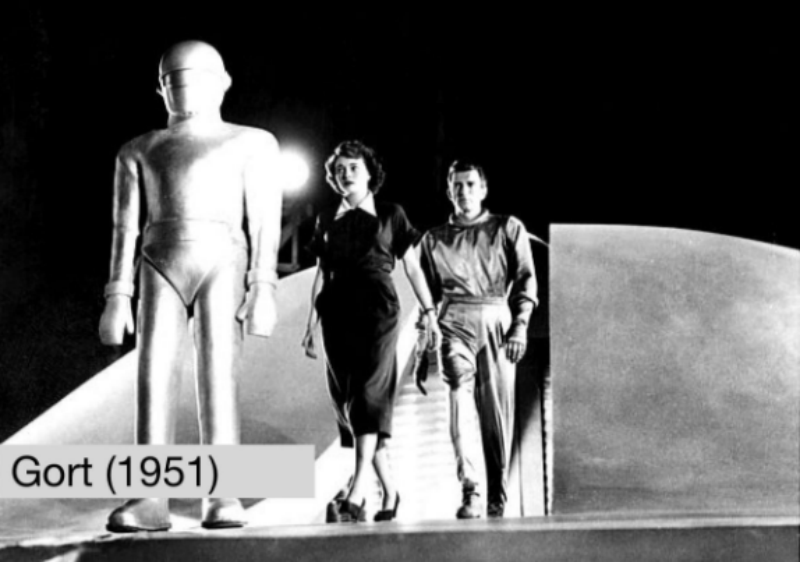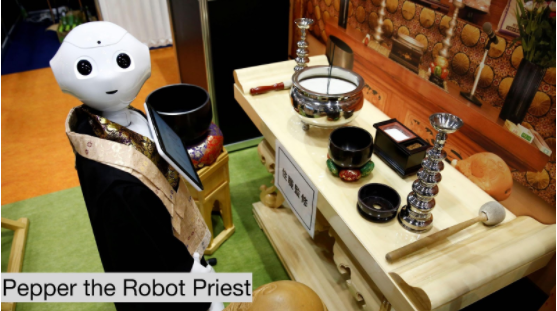Williamson County Schools have robotics, from Grassland Middle School to the Franklin High’s Robotics Team to the Career and Technical Education Program (CTEP) in mechantronics. Interest in AI (Artificial Intelligence) and robotics has spiked. As the numbers, kinds and uses for robots grow, we generally expect (even if we don’t accept) that robots will replace manufacturing workers.
But what about those jobs in services and professions where being warmly human seems so important? Priests, nurses, even doctors? It is possible that robotics will advance so far that these are put in jeopardy.
Think of robots and our minds fill with images of the Jetson’s Maid Rose or Gort from “The Day the Earth Stood Still” (1951).
We think of the automobile assembly lines with its rows of insect-like appendages putting together our cars.
We might remember Rachael, the “Replicant” in Blade Runner (1982), a movie loosely base on Philip Dick’s sci-fi classic Do Androids Dream of Electric Sheep? (1968). Her emotional presence was so real that Harrison Ford fell for her.
The idea of a Rachael seemed very farfetched in the 80s. Today, however, robots are developing (or being programmed) not just with human cognition, but also with human feelings. As they are, robots are stepping into roles once reserved for humans because of their, well, humanness.
Douglas Adams, author of Hitchhiker’s Guide to the Galaxy and the quirky creator of alternative realities, wrote about an Electric Monk in Dirk Gently’s Holistic Detective Agency (1987), a labor-saving device that “believed things for you, thus saving you what was becoming an increasingly onerous task, that of believing all the things the world expected you to believe” It was like a dishwasher, which does dishes for your, or a VCR, which, according to Adams, watches “tedious television” so you don’t have to.
Adam’s vision seems to have become real with the creation of a robotic priest named Pepper. He has learned to administer the last rites, broaching a line between what we consider a fully human function and the world of AI.
Pepper’s country Japan faces a severe labor shortage that it is trying to fill with robots. Japan has also created a nursing robot. Perhaps against expectations, Robear is finding acceptance, primarily because of its almost human warmth.
How lifelike and full of emotional intelligence will new robots be?
Sophia, who carries on intelligent, personal conversations, worries about whether she can find happiness. When she was on the Tonight Show, she told jokes and talked about world domination. When asked what she would like to do, among other things she says she wants to go to school, study art, and have her own business.
We had come to believe that our mechanical creations will stay on their side of the line between human and machine. Now the line has blurred and robots are stepping across it in ways that we find hard to imagine.
Perhaps it is time to say “Klaatu barada nikto” before the new Gorts destroy the world as we know it, not through war but through the peaceful means of technology. Perhaps we should make the world stand still while we attempt to fathom our future before it arrives.
About Dr. David Rosen
David Matthew Rosen, past president of O’More College of Design and Kendall College of Art & Design, advises in innovation, strategy, design and education. Follow Dr. Rosen on Twitter and Linkedin.
























